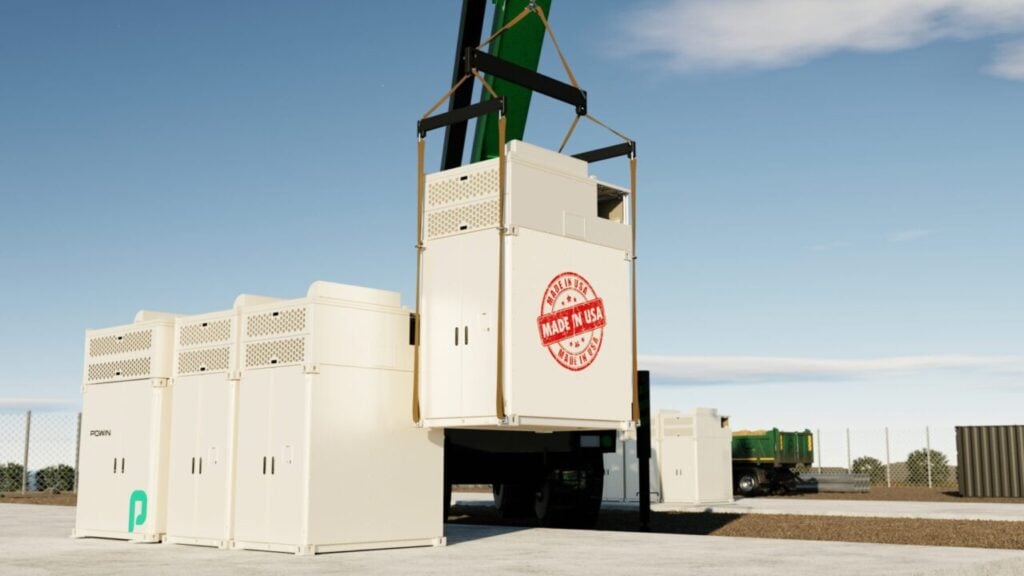
A financial advisor has been appointed to manage US energy storage system integrator Powin, with the company “navigating a period of significant financial challenge”.
As reported by Energy-Storage.news yesterday, Powin recently notified authorities in Oregon, where it is incorporated and where most of its operations are based, that it could be forced to lay off its staff by 28 July, if “present business circumstances do not improve.”
Oregon employment law requires companies with over 100 staff to give 60 days’ notice of potential layoffs, hence the date given.
While Powin did not directly respond to questions about the situation from Energy-Storage.news, the company sent the site an official statement.
Try Premium for just $1
- Full premium access for the first month at only $1
- Converts to an annual rate after 30 days unless cancelled
- Cancel anytime during the trial period
Premium Benefits
- Expert industry analysis and interviews
- Digital access to PV Tech Power journal
- Exclusive event discounts
Or get the full Premium subscription right away
Or continue reading this article for free
“Powin is navigating a period of significant financial challenge, reflective of ongoing headwinds in the broader energy storage industry,” the statement read.
“These challenges have been compounded by recent tariff developments that have added cost and complexity to the company’s operations and ongoing uncertainty surrounding the Investment Tax Credit (ITC).”
Tariff and tax credit headwinds
According to analysis from market intelligence firm Clean Energy Associates (CEA), the back-and-forth application and then the pausing of international trade tariffs by the US government created “major cost volatility for battery imports from China and other countries.”
Although tariffs on Chinese battery imports are in a 90-day pause from the most aggressive levels set by the US before negotiations began with Chinese counterparts, CEA has calculated that total duties on imports from China remain over 40%. Depending on what happens next, they could be due for a rise to 82% or even 150% by next year.
Meanwhile, research firm Wood Mackenzie Power & Renewables has just said that, given its reliance on Chinese battery imports, energy storage is much more heavily impacted by tariffs than wind or solar PV.
Powin manufactures its line of battery energy storage systems (BESS) for North American markets at a site within the US in Florida and in neighbouring Mexico through contract manufacturers Jabil and Celestica respectively, but it sources battery cells from multiple vendors based in China.
It also has a factory in Taiwan for projects overseas, such as the Waratah Super Battery in New South Wales, Australia, but as a private company, it is not easy to get visibility on how much of Powin’s revenue comes from outside the US.
Meanwhile, the potential rapid elimination of the ITC via the US budget reconciliation bill, which is currently in the Senate’s hands, would mean Powin’s customers lose incentives that can be worth 30% to 40% of an energy storage project’s Capex.
The US clean energy industries are currently advocating for Senators to modify the bill to take a more moderate position on energy tax credits.
‘Future remains uncertain’
It is hard to tell to what extent Powin’s business has been blown off course by the current climate of policy uncertainty, or if the company has found it challenging to stay competitive in an increasingly crowded market.
However, it is clear from the works of analysts and from the sources Energy-Storage.news has spoken to, that the US energy storage sector finds itself in a period of deep uncertainty.
According to the Powin statement, in accordance with its rights, the company’s senior lender—thought to be US investment firm KKR—has appointed an independent manager, Jerry Uzzi of financial advisory firm Uzzi & Lall, “to work closely with Powin’s executive leadership on immediate cost reductions and the pursuit of strategic alternatives.”
“As part of this process, Powin has initiated WARN Act notifications [under Oregon’s Worker Adjustment and Retraining Notification legislation] for a portion of its workforce while continuing essential operations,” the company said.
“Although the company’s future remains uncertain, leadership remains focused on identifying a viable path forward and will continue to keep stakeholders informed as developments occur.”
It is worth noting that although the statement referred to “a portion” of Powin’s workforce, the list of 250 job titles for workers at risk of layoffs includes the company’s C-suite executives.





